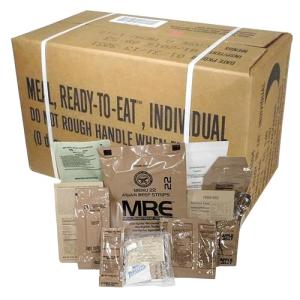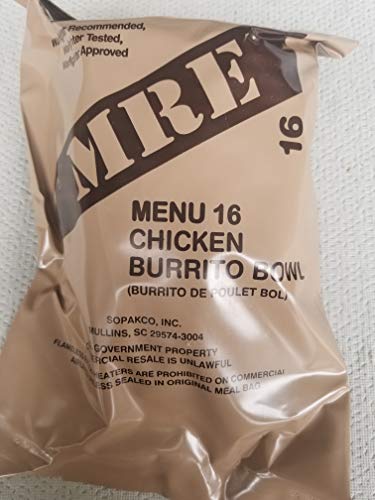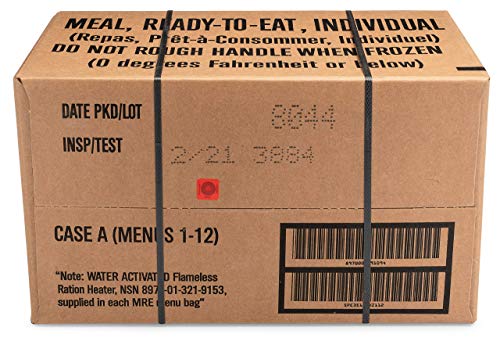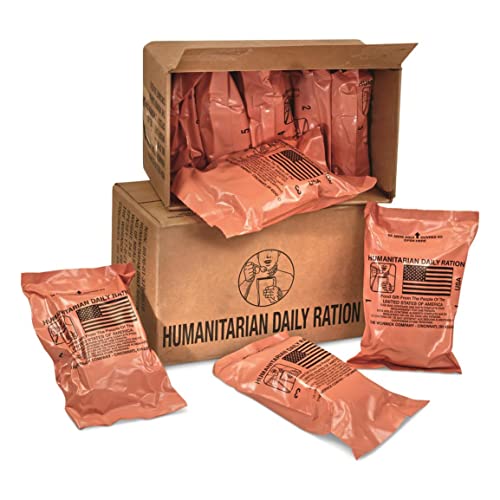Essential Survival Foods: 13 Items Every Prepper Should Stockpile
In times of uncertainty or emergencies, having a well-stocked pantry can make all the difference. Whether you're facing a natural disaster, economic instability, or simply preparing for the unexpected, having a supply of survival foods on hand can provide peace of mind and essential sustenance. In this blog post, we'll explore 13 survival foods that every prepper should consider adding to their emergency supplies.
1. Rice: Rice is a versatile staple that provides essential carbohydrates for energy. With its long shelf life, which can range from 4-5 years for white rice and up to 30 years for properly stored brown rice, and its ability to be cooked in various ways, rice is a reliable foundation for many meals. Whether it's steamed, boiled, fried, or used in soups and casseroles, rice is a versatile and filling grain that can sustain you through challenging times.
2. Beans: Beans are an excellent source of protein and fiber, offering sustained energy and essential nutrients. Dried beans have an impressively long shelf life, lasting anywhere from 1-2 years or more when stored in a cool, dry place. Whether it's black beans, kidney beans, pinto beans, or lentils, these legumes provide a valuable source of sustenance and can be cooked in a variety of ways. From soups and stews to salads and dips, beans are a versatile and nutritious addition to any emergency pantry.
3. Canned Meats: Canned meats such as tuna, chicken, or beef provide valuable protein and nutrients. They're convenient for quick meals and require no refrigeration or cooking. With a shelf life ranging from 2-5 years or more, canned meats offer a reliable source of sustenance during emergencies. Whether eaten straight from the can, added to salads or sandwiches, or used in casseroles and pasta dishes, canned meats provide essential nutrients to keep you strong and healthy.
4. Canned Vegetables: Canned vegetables retain essential vitamins and minerals and offer a quick and easy way to incorporate vegetables into meals during emergencies. With a shelf life ranging from 1-5 years or more, canned vegetables provide a convenient and nutritious option for times when fresh produce may not be available. Whether it's corn, green beans, peas, or carrots, canned vegetables can be added to soups, stews, casseroles, and stir-fries to boost their nutritional content and add flavor and texture to your meals.
5. Peanut Butter: Peanut butter is a dense source of protein and healthy fats, making it an excellent choice for energy and satiety. With a shelf life of up to 1-2 years or more when stored in a cool, dry place, peanut butter is a long-lasting and versatile pantry staple. Whether spread on bread or crackers, added to smoothies or oatmeal, or used in baking recipes, peanut butter provides a delicious and nutritious source of energy during emergencies.
6. Oats: Oats are a nutritious breakfast option that provides fiber and complex carbohydrates, offering sustained energy throughout the day. With a shelf life of 1-2 years or more when stored in a cool, dry place, oats are a reliable and versatile pantry staple. Whether cooked into a warm bowl of oatmeal or used in baking recipes for cookies, muffins, and granola bars, oats provide a nutritious and filling source of sustenance during emergencies.
7. Pasta: Pasta is a versatile and filling pantry staple that stores well for extended periods. With a shelf life of 1-2 years or more when stored in a cool, dry place, pasta is a reliable source of carbohydrates and can be used in a wide variety of dishes. Whether it's spaghetti, penne, rigatoni, or macaroni, pasta can be cooked and served with canned sauces, vegetables, or meats to create hearty and satisfying meals during emergencies.
8. Canned Soups and Stews: Canned soups and stews offer a comforting and nourishing meal option during emergencies. With a shelf life ranging from 1-5 years or more, canned soups and stews provide a convenient and flavorful option for times when cooking from scratch may not be feasible. Whether it's chicken noodle soup, beef stew, or vegetable soup, canned soups and stews can be heated and served on their own or used as a base for more elaborate meals.
9. Dried Fruits: Dried fruits provide natural sugars and essential vitamins, offering a healthy snack option for energy boosts throughout the day. With a shelf life of 6-12 months or more when stored in a cool, dry place, dried fruits are a portable and nutritious option for emergency supplies. Whether it's raisins, apricots, apples, or bananas, dried fruits can be eaten on their own as a quick and convenient snack or added to trail mix, granola, or oatmeal for added flavor and nutrition.
10. Nuts and Seeds: Nuts and seeds are packed with protein, healthy fats, and essential nutrients, making them an excellent choice for on-the-go snacking. With a shelf life of 6-12 months or more when stored in a cool, dry place, nuts and seeds are a portable and nutritious option for emergency supplies. Whether it's almonds, peanuts, walnuts, or sunflower seeds, nuts and seeds can be eaten on their own as a quick and convenient snack or added to trail mix, salads, or yogurt for added flavor and nutrition.
11. Shelf-Stable Milk or Milk Alternatives: Shelf-stable milk provides calcium and essential nutrients without the need for refrigeration, making it a valuable addition to any emergency pantry. With a shelf life ranging from 6 months to 1 year or more, shelf-stable milk offers a convenient and nutritious option for times when fresh milk may not be available. Whether it's cow's milk, soy milk, almond milk, or coconut milk, shelf-stable milk can be used in cooking, baking, or enjoyed on its own as a beverage.
12. Honey: Honey is a natural sweetener with antimicrobial properties, making it an ideal choice for sweetening beverages or adding to baked goods. With an indefinite shelf life, honey can be stored for long periods without spoiling, making it a valuable addition to any emergency supplies. Whether it's drizzled over oatmeal or yogurt, added to tea or coffee, or used in baking recipes for cookies, cakes, and bread, honey provides a delicious and versatile source of sweetness during emergencies.
13. Jerky: Jerky, whether made from meat or plant-based sources, is a high-protein snack that doesn't require refrigeration. With a shelf life of 6-12 months or more when stored in a cool, dry place, jerky is a portable and nutritious option for emergency supplies. Whether it's beef jerky, turkey jerky, or tofu jerky, jerky provides a convenient and satisfying option for on-the-go energy during emergencies.
By stockpiling these 13 survival foods, you can ensure you and your family are prepared for whatever challenges may come your way. Whether you're facing a short-term power outage or a more prolonged emergency, having a supply of essential foods on hand can provide comfort, sustenance, and peace of mind. So take the time to build your emergency pantry today—you'll be glad you did when the unexpected strikes.




